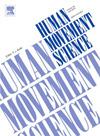Gender stereotype threat and motor learning: Exploring its impact, underlying mechanisms, and attentional focus pathways for mitigation
IF 1.9
3区 心理学
Q4 NEUROSCIENCES
引用次数: 0
Abstract
While some studies suggest stereotype threat negatively affects motor performance and learning, further research is needed to better understand its effects and underlying mechanisms, which could lead to strategies for mitigating its impact. In experiment 1, we 1) investigated the effects of gender stereotype threat on learning of an aiming task among adolescent girls, 2) evaluated conscious processes and motivational processes to explore the variables that act as mediators in the context of stereotype threats on performance, and 3) conducted in-depth interviews to explore the participants' experiences, understandings, and opinions related to gender stereotype. Moving one step further, with respect to our findings in Exp 1, we tested whether attentional focus strategies could mitigate the negative effects of stereotype threat on the motor learning of adolescent girls (Exp 2). Our results revealed that implementing an external focus of attention can mitigate the detrimental effects of stereotype threat on motor performance and learning in adolescent girls. These findings hold significant implications for the acquisition of motor skills among adolescents, especially in stereotype-threat conditions. Coaches and teachers, particularly in activities such as throwing, can encourage adolescents to adopt an external focus of attention.
性别刻板印象威胁与运动学习:探讨其影响、潜在机制和缓解的注意焦点途径
虽然一些研究表明刻板印象威胁对运动表现和学习产生负面影响,但需要进一步的研究来更好地了解其影响和潜在机制,从而找到减轻其影响的策略。实验1考察了性别刻板印象威胁对青春期女孩目标任务学习的影响,评价了刻板印象威胁背景下的意识过程和动机过程,探讨了刻板印象威胁背景下对目标任务学习的中介变量,并通过深度访谈探讨了被试对性别刻板印象的体验、理解和看法。在实验1的基础上,我们进一步验证了注意焦点策略是否可以减轻刻板印象威胁对青春期女孩运动学习的负面影响(实验2)。结果表明,实施外部注意焦点可以减轻刻板印象威胁对青春期女孩运动表现和学习的不利影响。这些发现对青少年运动技能的习得具有重要意义,特别是在刻板印象威胁条件下。教练和教师,特别是在投掷等活动中,可以鼓励青少年采用外部注意力焦点。
本文章由计算机程序翻译,如有差异,请以英文原文为准。
求助全文
约1分钟内获得全文
求助全文
来源期刊

Human Movement Science
医学-神经科学
CiteScore
3.80
自引率
4.80%
发文量
89
审稿时长
42 days
期刊介绍:
Human Movement Science provides a medium for publishing disciplinary and multidisciplinary studies on human movement. It brings together psychological, biomechanical and neurophysiological research on the control, organization and learning of human movement, including the perceptual support of movement. The overarching goal of the journal is to publish articles that help advance theoretical understanding of the control and organization of human movement, as well as changes therein as a function of development, learning and rehabilitation. The nature of the research reported may vary from fundamental theoretical or empirical studies to more applied studies in the fields of, for example, sport, dance and rehabilitation with the proviso that all studies have a distinct theoretical bearing. Also, reviews and meta-studies advancing the understanding of human movement are welcome.
These aims and scope imply that purely descriptive studies are not acceptable, while methodological articles are only acceptable if the methodology in question opens up new vistas in understanding the control and organization of human movement. The same holds for articles on exercise physiology, which in general are not supported, unless they speak to the control and organization of human movement. In general, it is required that the theoretical message of articles published in Human Movement Science is, to a certain extent, innovative and not dismissible as just "more of the same."
 求助内容:
求助内容: 应助结果提醒方式:
应助结果提醒方式:


